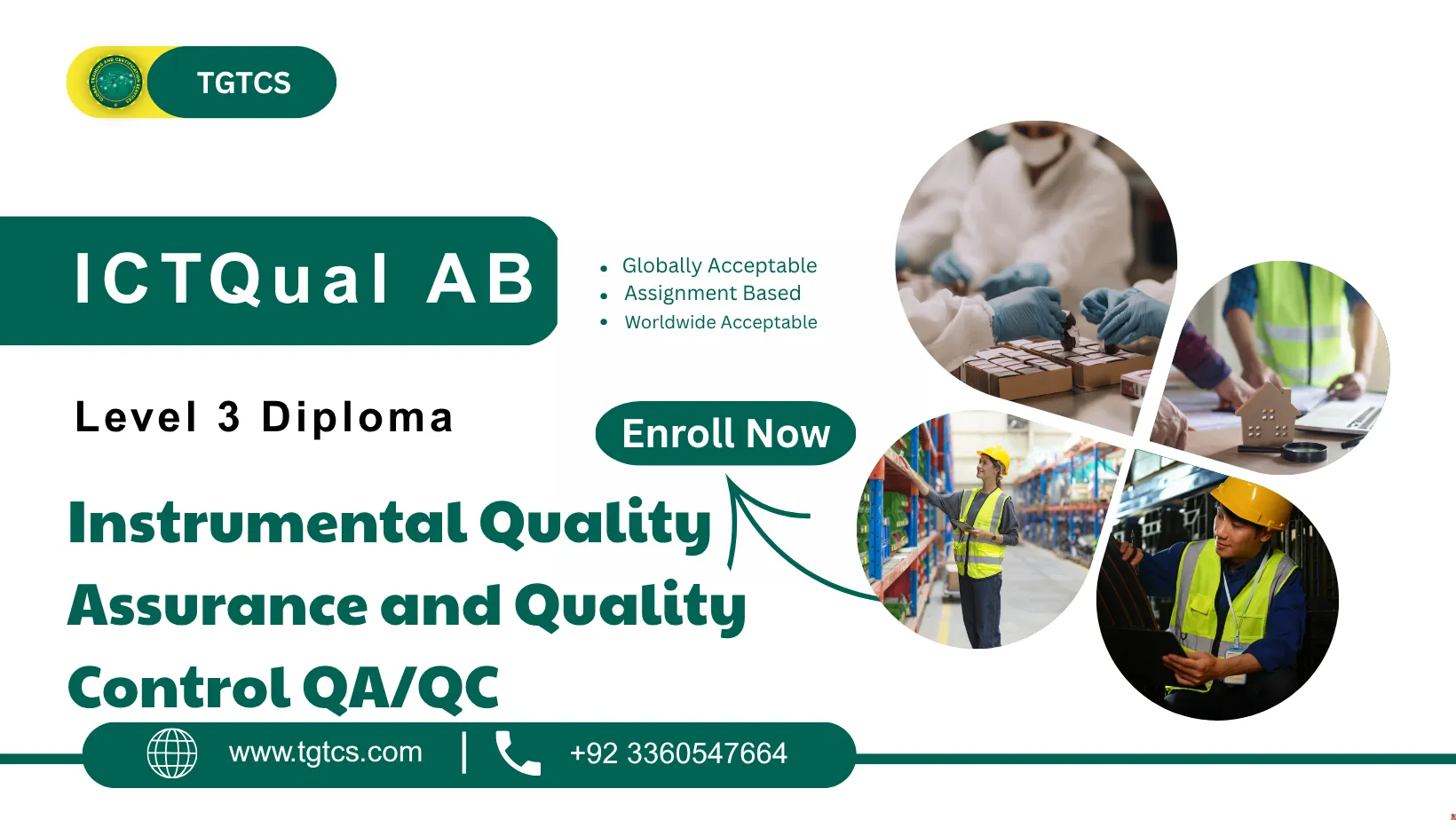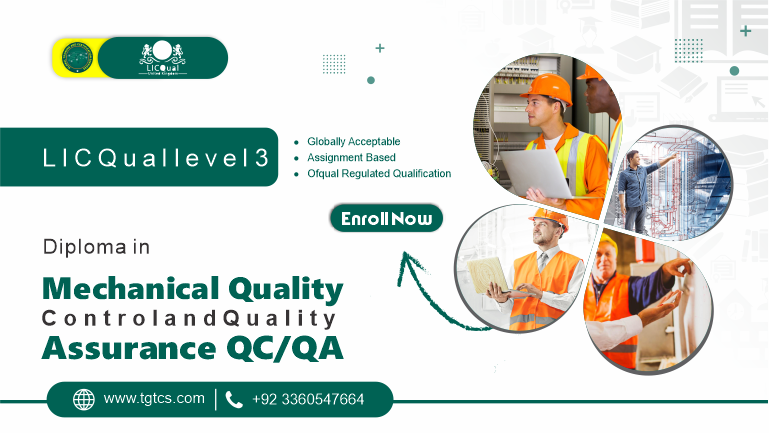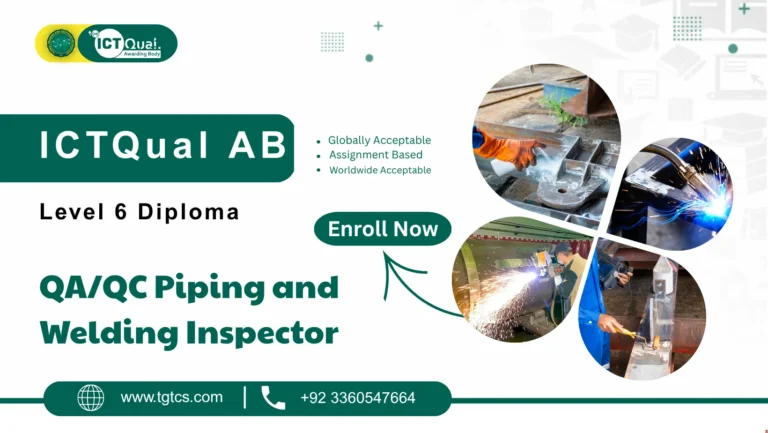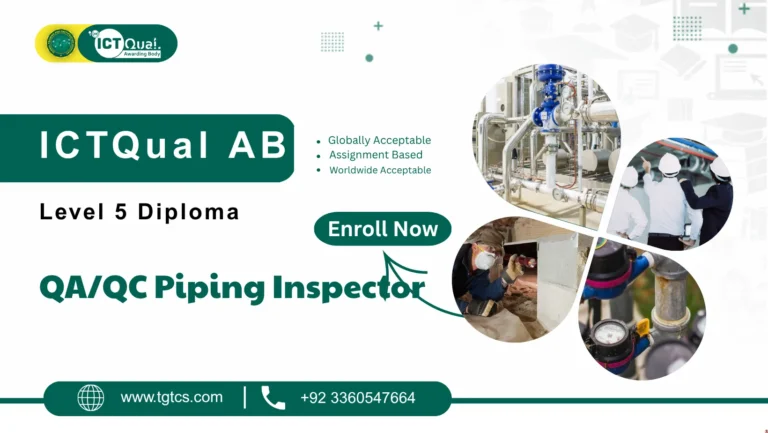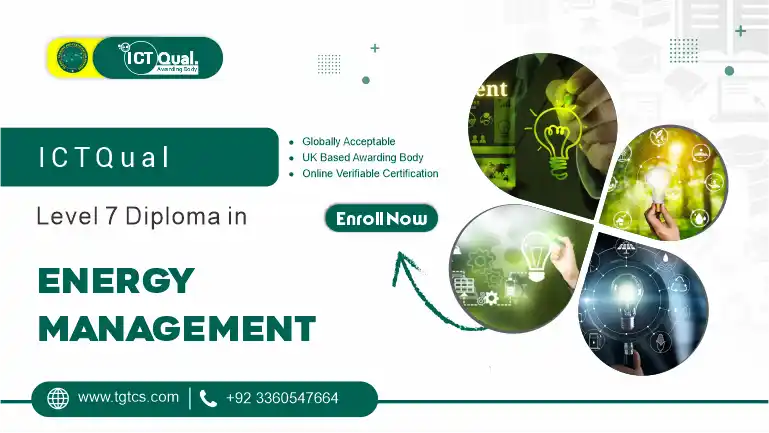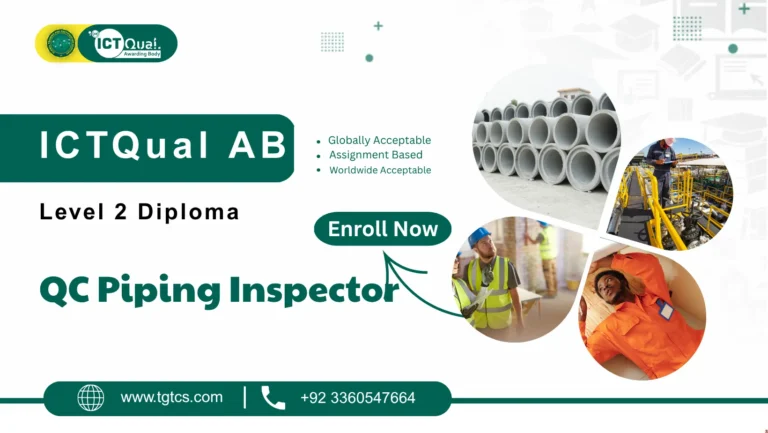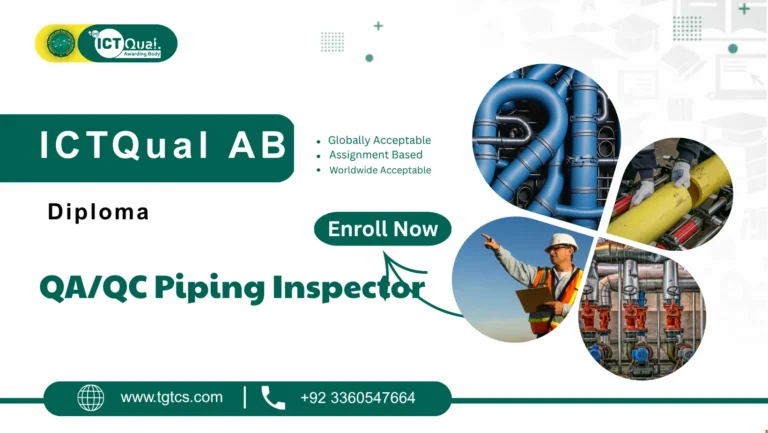ICTQual AB Level 3 Diploma in Instrumental Quality Assurance and Quality Control QA/QC
The ICTQual AB Level 3 Diploma in Instrumental Quality Assurance and Quality Control (QA/QC) is a foundational vocational qualification designed to equip learners with the essential skills and knowledge required to monitor, evaluate, and maintain quality standards in industrial environments. This course introduces the principles of QA/QC, focusing on the role of instrumentation in ensuring product consistency, regulatory compliance, and operational efficiency across sectors such as manufacturing, oil & gas, pharmaceuticals, and construction.
Learners gain hands-on experience with quality control instruments and techniques used to inspect materials, processes, and finished products. The curriculum covers key areas including calibration procedures, documentation practices, inspection protocols, and the interpretation of technical standards and specifications. Emphasis is placed on understanding international quality frameworks, safety regulations, and the integration of QA/QC systems with industrial instrumentation and automation technologies.
By completing this diploma, learners are prepared to take on technician-level roles in quality assurance and control departments. The qualification enhances employability by providing practical skills and a recognized credential that supports career entry and progression. Whether aiming to join a QA/QC team or seeking to build a foundation for further study in quality management or engineering, this diploma offers a valuable starting point for a successful career in industrial quality systems.
The Global Training and Certification Services is Approved Training Centre of ICTQual AB UK Ltd
Course Level and Credits
The ICTQual AB Level 3 Diploma in Instrumental Quality Assurance and Quality Control (QA/QC) is a foundational vocational qualification aligned with international standards. It carries credits that support career entry and progression within industrial quality systems and technical disciplines.
Mode of Study
The course is delivered through a blended learning format, combining classroom instruction, practical workshops, and self-paced study. This flexible approach allows learners to gain hands-on experience with QA/QC instruments while accommodating different learning styles and schedules.
Global Recognition & Attestation
This diploma is internationally recognized and can be attested by relevant authorities for employment and academic use across borders. It meets global vocational benchmarks, making it a valuable credential for professionals seeking opportunities in quality assurance and control worldwide.
Scope and Purpose
The course is designed to prepare learners for technician-level roles in industrial QA/QC departments. It focuses on the use of instrumentation to monitor, inspect, and maintain quality standards across sectors such as manufacturing, oil & gas, pharmaceuticals, and construction.
Skills and Knowledge Gained
Learners develop practical skills in calibration, inspection, documentation, and compliance. They gain knowledge of international quality standards, safety protocols, and the integration of QA/QC systems with industrial instrumentation and automation technologies.
Career Benefits
Graduates are equipped to work as QA/QC Technicians, Quality Inspectors, or Calibration Assistants in industrial settings. The qualification enhances employability, supports career advancement, and provides a solid foundation for further study in quality management or engineering.
Mandatory Unit
This qualification, the Level 3 Diploma in Instrumental Quality Assurance and Quality Control QA/QC, consists of 6 mandatory units.
- Principles of Instrumental Quality Assurance and Inspection
- Material Receiving, Handling, and Preservation
- International Codes and Standards for Instrumentation
- Instrument Tubing and Installation Practices
- Instrument Elements and Process Variables
- Loop Checking, Testing, and Commissioning
Learning Outcomes for the Level 3 Diploma in Instrumental Quality Assurance and Quality Control QA/QC:
Principles of Instrumental Quality Assurance and Inspection
- Explain the fundamental concepts of Quality Assurance (QA) and Quality Control (QC) in instrumentation.
- Develop and interpret Inspection Test Plans (ITPs) for instrumentation projects.
- Use inspection checklists to verify compliance with project specifications.
- Identify and apply different levels of inspection in industrial projects.
- Maintain accurate QA/QC documentation and reporting records.
- Recognise the importance of compliance with international standards in inspection activities.
- Apply systematic inspection techniques to ensure quality and safety.
- Demonstrate awareness of the inspector’s role in project success.
Material Receiving, Handling, and Preservation
- Inspect incoming materials against purchase orders and specifications.
- Verify material certificates and documentation for compliance.
- Apply correct procedures for receiving and storing instrumentation materials.
- Implement preservation techniques to protect sensitive equipment.
- Identify non‑conforming materials and report appropriately.
- Maintain traceability of materials throughout the project lifecycle.
- Follow international best practices for safe handling and storage.
- Ensure readiness of materials for installation and inspection.
International Codes and Standards for Instrumentation
- Interpret and apply NEMA VE‑1/VE‑2 standards for cable trays.
- Apply NEC‑250 grounding requirements in instrumentation projects.
- Explain conduit system requirements (RMS, FMT, RGS, IMT) as per NEC Articles 344–400.
- Identify compliance requirements for junction boxes and cabinets under NEMA standards.
- Evaluate the importance of adhering to international codes in QA/QC.
- Compare national and international standards for instrumentation installations.
- Apply standards to ensure safety, reliability, and compliance.
- Document inspections in line with NEC and NEMA requirements.
Instrument Tubing and Installation Practices
- Select appropriate tubing materials for instrumentation applications.
- Apply correct tubing layout, bending, and connection techniques.
- Inspect tubing installations for leaks and compliance with standards.
- Follow Aramco and international standards for tubing practices.
- Identify common tubing faults and propose corrective actions.
- Ensure proper support and routing of tubing systems.
- Maintain documentation of tubing inspections and tests.
- Apply safety practices during tubing installation and inspection.
Instrument Elements and Process Variables
- Identify and describe instrument elements for pressure, flow, temperature, and level.
- Inspect and verify installation of instrument elements against standards.
- Apply Aramco and international QA/QC requirements to instrumentation.
- Calibrate basic instrument elements to ensure accuracy.
- Recognise the role of process variables in industrial operations.
- Document inspection and calibration results accurately.
- Troubleshoot common issues with instrument elements.
- Ensure compliance with safety and operational standards.
Loop Checking, Testing, and Commissioning
- Explain the purpose and process of loop checking in instrumentation systems.
- Perform loop checks to verify continuity and functionality.
- Document loop check results in accordance with QA/QC requirements.
- Conduct pre‑commissioning tests on instrumentation systems.
- Apply commissioning procedures to ensure system readiness.
- Identify and resolve issues during testing and commissioning.
- Ensure compliance with international standards during commissioning.
- Contribute to safe handover of fully tested and commissioned systems.
The ICTQual AB Level 3 Diploma in Instrumental Quality Assurance and Quality Control (QA/QC) offers learners a solid foundation in industrial quality practices, combining technical instrumentation skills with quality control methodologies. This course is designed to prepare individuals for technician-level roles in QA/QC departments across a variety of industries.
Core Technical Competence
- Learn to operate and calibrate quality control instruments used in industrial settings
- Understand measurement principles and inspection techniques for materials and products
- Apply standard procedures for testing, sampling, and verification
- Interpret technical specifications, datasheets, and compliance documents
- Perform routine checks to ensure equipment accuracy and reliability
Quality Systems and Compliance
- Develop hands-on experience with tools used in quality inspection and control
- Build familiarity with calibration logs, inspection reports, and quality records
- Strengthen attention to detail and precision in technical tasks
- Learn to work effectively in QA/QC teams and production environments
- Understand the role of instrumentation in maintaining product consistency
Practical Skills and Workplace Readiness
- Develop hands-on experience with tools used in quality inspection and control
- Build familiarity with calibration logs, inspection reports, and quality records
- Strengthen attention to detail and precision in technical tasks
- Learn to work effectively in QA/QC teams and production environments
- Understand the role of instrumentation in maintaining product consistency
Career Development and Industry Relevance
- Qualify for roles such as QA/QC Technician, Quality Inspector, or Calibration Assistant
- Enhance employability in sectors like manufacturing, oil & gas, construction, and pharmaceuticals
- Gain a recognized credential that supports career entry and progression
- Build a foundation for further study in quality management or engineering disciplines
- Meet employer expectations for certified quality control personnel
Professional Growth and Confidence
- Develop a disciplined and methodical approach to quality assurance tasks
- Gain confidence in applying technical standards and inspection protocols
- Cultivate a mindset focused on continuous improvement and compliance
- Experience the satisfaction of contributing to product reliability and safety
- Build pride in maintaining high standards within industrial operations
Completing the ICTQual AB Level 3 Diploma in Instrumental QA/QC empowers learners with the skills, knowledge, and certification needed to launch a successful career in industrial quality assurance and control.
The ICTQual AB Level 3 Diploma in Instrumental Quality Assurance and Quality Control (QA/QC) is designed for learners who are eager to build a career in industrial quality systems. It suits individuals who value precision, compliance, and technical excellence, and who are ready to contribute to maintaining high standards in production and operations.
Aspiring QA/QC Technicians
- Individuals who have completed secondary education and are interested in quality control careers
- Learners seeking a practical, hands-on introduction to industrial QA/QC practices
- Candidates aiming to work in sectors like manufacturing, oil & gas, construction, or pharmaceuticals
- Those who want to understand how instrumentation supports quality assurance
- Students looking for a recognized qualification to enter the technical workforce
Technical and Vocational Graduates
- Graduates of electrical, mechanical, or industrial technology programs seeking specialization
- Learners who want to add QA/QC skills to their existing technical background
- Individuals preparing for technician-level roles in inspection and compliance
- Candidates looking to meet employer requirements for certified quality personnel
- Those planning to pursue further studies in quality management or engineering
Maintenance and Production Personnel
- Workers involved in production, maintenance, or operations who want to expand their roles
- Technicians seeking to understand quality control procedures and standards
- Employees responsible for equipment calibration and inspection tasks
- Staff aiming to improve documentation and reporting for audits and compliance
- Individuals looking to formalize their experience with a recognized qualification
Career Starters and Industry Entrants
- Individuals entering the workforce and seeking stable, in-demand roles
- Career changers with an interest in industrial quality systems and instrumentation
- Learners returning to education with a focus on applied technical skills
- Candidates looking for internationally recognized certification for global mobility
- People interested in contributing to product reliability and safety
- This course offers a clear and achievable path into industrial QA/QC roles.
Professionals Seeking Certification and Recognition
- Technicians with informal QA/QC experience who lack formal credentials
- Employees seeking certification for regulatory or employer requirements
- Individuals aiming to validate their skills for international employment
- Professionals preparing for supervisory or documentation-focused roles
- Workers looking to enhance their resumes with a globally recognized qualification
The ICTQual AB Level 3 Diploma in Instrumental QA/QC is ideal for learners at various stages of their professional journey. It provides the technical depth, practical training, and global recognition needed to succeed in industrial quality assurance and control.
Course Overview
Course Level
Level 3
Course Units
6 Units
Credits
30
